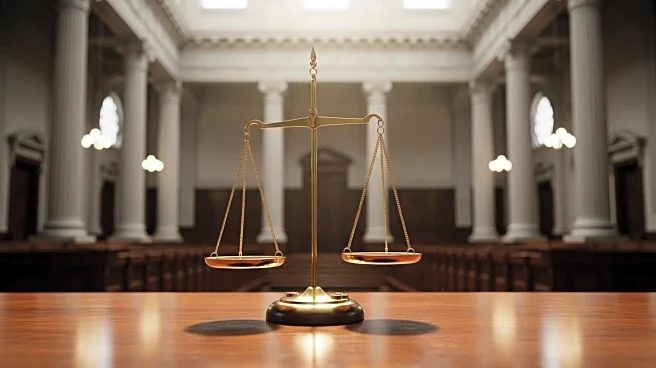What's Happening?
The U.S. Supreme Court has agreed to hear an appeal from Exxon Mobil Corporation regarding the Cuban government's confiscation of its oil refinery and other properties seized by Fidel Castro's regime in the late 1950s. This case, along with another involving Havana Docks Corporation, highlights a shift in U.S. policy towards Cuba, contrasting the approaches of previous administrations. The litigation could redefine the ability of Americans to sue foreign entities in U.S. courts, with Exxon seeking compensation for losses certified at nearly $72 million, potentially amounting to hundreds of millions with interest and damages. The court's decision may impact thousands of claims related to property seized during Cuba's communist revolution.
Why It's Important?
The Supreme Court's decision could have significant implications for U.S. foreign policy and the legal landscape regarding claims against foreign governments. If the court allows these lawsuits to proceed, it may open the door for numerous claims against Cuba, potentially affecting diplomatic relations and international legal norms. The case also underscores the broader issue of property rights and compensation for American companies affected by foreign government actions. A ruling in favor of Exxon and Havana Docks could set a precedent for similar cases, influencing how U.S. courts handle international property disputes and impacting the financial interests of American businesses with historical claims.
What's Next?
The Supreme Court is expected to hear arguments next year and deliver a decision by June. The outcome could lead to a wave of litigation against Cuba and other foreign governments, depending on the court's interpretation of existing laws governing such claims. Stakeholders, including the U.S. government, affected companies, and foreign entities, will closely monitor the proceedings, as the decision could reshape the legal framework for international property disputes. The case may also prompt legislative action to address the complexities of suing foreign governments in U.S. courts.
Beyond the Headlines
The ethical and legal dimensions of this case are profound, as it challenges the balance between national interests and individual rights to seek compensation for historical injustices. The decision could influence how countries negotiate property claims and reparations, potentially affecting global diplomatic relations. Additionally, the case highlights the long-term impact of Cold War-era policies on contemporary legal and economic issues, reflecting the enduring legacy of geopolitical conflicts on business and legal practices.








